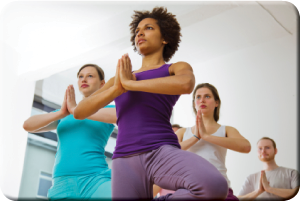 This is a word seen almost ubiquitously. And it is used in many different ways. Here is Scott’s take on it:
This is a word seen almost ubiquitously. And it is used in many different ways. Here is Scott’s take on it:
A multi-faceted sense of well-being that includes physical vitality and strength, ample energy, optimism, acceptance and a full range of emotions that tend to balance out towards general happiness and contentment with life.
Many factors affect our wellness. And we cannot control all of them. But there is so very much that we can do. These include both outward behaviors (such as types of movement and exercise, what we eat, how much we sleep etc.) and also internal behaviors (our thought patterns, attitudes, our cultivation of optimism, gratitude and altruism.)
A comprehensive approach to wellness includes some effort in both external and internal behaviors. Some of this path feels great; some of it is difficult; all is rewarding. In this way, of choosing the goal (well-being/wellness) and being willing to work towards it through easier or more challenging steps, this path is not separate from the path of life, the path of fulfilling your true purpose.
Click image for more information



Your happiness, joy and level of contentment are part of your wellness. If you are not paying attention to them, you probably won’t reach your optimum wellness. But what do we really do to boost joy? The answer could be “many things,” but here’s a tip: You don’t necessarily have to keep making changes in your outer circumstances to have joy. Sometimes, instead of changing jobs or relationships, instead of going on vacation or eating ice cream, we do something inside. We practice appreciating what we have, we think of someone else with problems and wish them well, we decide to see the bright side. It is a process.
In general, we can say that positively affecting your wellness involves some sort of lifestyle change- from exercise to eating to thinking and sleeping and more. Seen with the understanding that the long term, cumulative effects of our behaviors are what determine our health even more than the curative things (e.g. medicines), we understand that it is our day to day actions, all the small behaviors (what you ate or didn’t, whether you exercised or not, whether you got angry or not) that add up to create our health and wellness level. It’s all the small things.
Some things connected to longer, healthier lives include- having a support system (loved ones,) being optimistic/hopeful, not being sedentary/getting regular exercise, eating enough (a lot of) vegetables and fruits—a more plant-based diet, being caring for others, having faith and not being overweight. There are certainly other factors but this gives most of us plenty to work on already!
 This is a word seen almost ubiquitously. And it is used in many different ways. Here is Scott’s take on it:
This is a word seen almost ubiquitously. And it is used in many different ways. Here is Scott’s take on it:


